
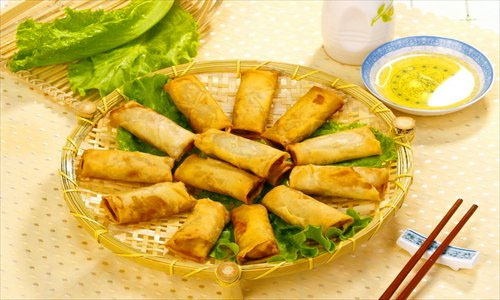 |
| A plate of fried spring rolls (GT Photo) |
The ancient Chinese created an agricultural solar system - still in use today - that is based upon their observation of crops, climate, astrology, and the study of animal and plant life cycles. The system guided farmers as to when to sow seeds and when to harvest them, and this system has now been in place for more than 2,000 years.
Today, with advances in science and technology, agriculture depends less on this ancient wisdom. But this seasonal calendar still operates as a reference guide for gourmands to seek out the best times for seasonal delicacies and for health experts to plan nutritious diets.
In a single year, the system features 24 "solar terms," each lasting one day and occurring every two weeks. Each has its own name and characteristics. The Global Times is presenting a weekly series examining which foods and delicacies are best enjoyed during these periods, as well as tips on preserving general health.
In the Chinese solar calendar, lichun, which literally means "build up to spring," is the first of the 24 periods of the solar year. It takes place on February 4 this year.
The onset of lichun sees grass clearing the ground, the days starting to lengthen, and more sunshine and rain. Farmers are getting busier and citizens are generally performing more outdoor activities. As an old farming proverb goes, lichun yushui dao, zao qi wan shuijiao ("rain comes after lichun, and this is the time to get up earlier and sleep later." Another proverb has it: yinian zhi ji zaiyu chun[ ("a year's planning starts with the spring").
In some places, people follow the tradition of yaochun (a bite of spring) where they will eat chunpan (a mixture of vegetables), chunbing (spring pancake) and chunjuan (spring roll).




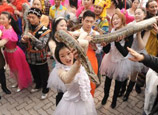
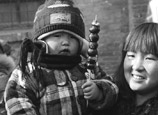

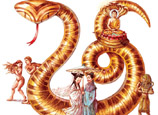

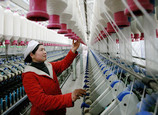







 Most feared Spring Festival questions
Most feared Spring Festival questions


![]()
